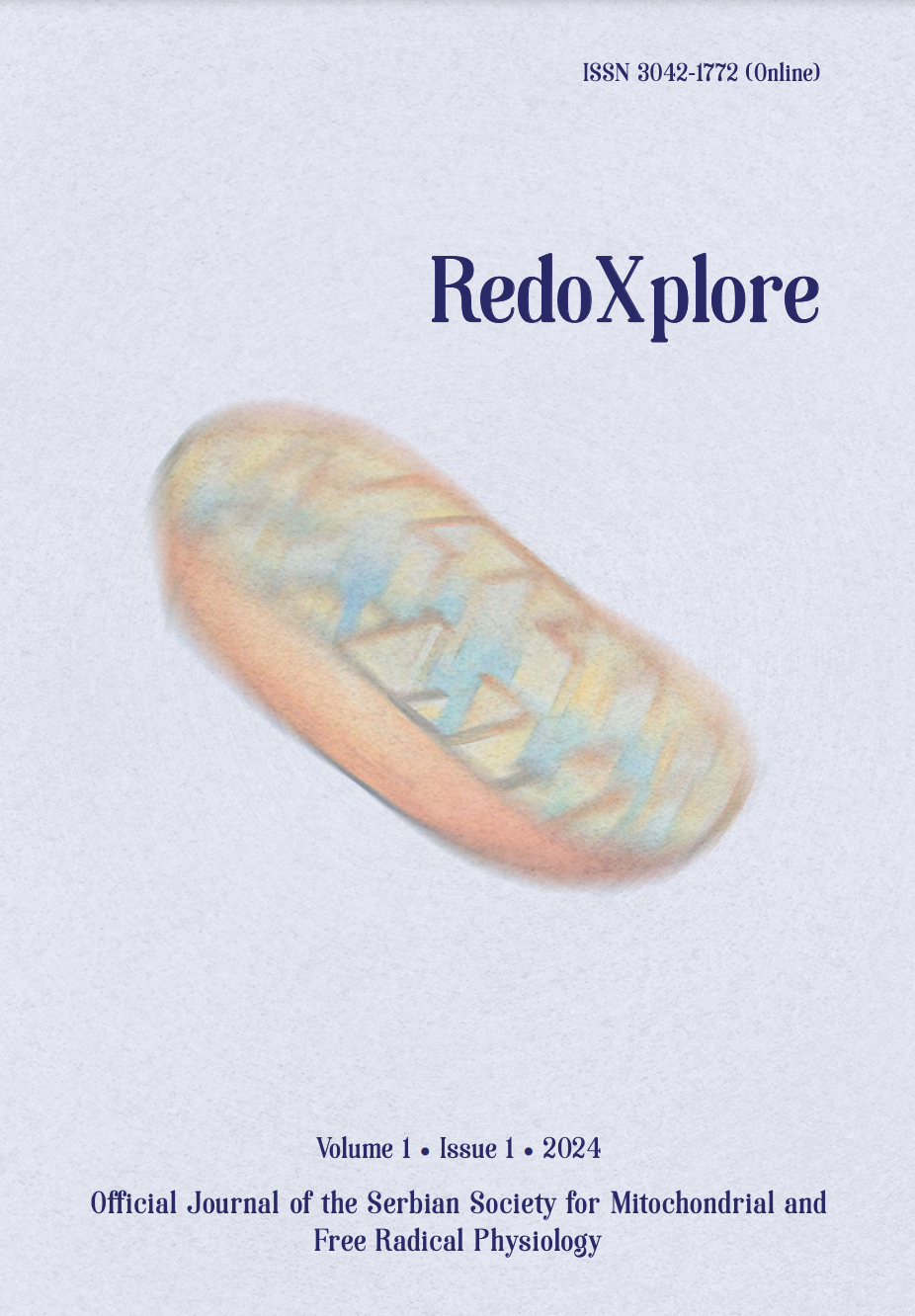
More articles from Volume 1, Issue 1, 2024
REDOX AND METABOLIC REPROGRAMMING OF BREAST CANCER CELLS AND ASSOCIATED ADIPOSE TISSUE - THE CORNERSTONES OF ADAPTIVE TUMOUR BEHAVIOUR
INSULIN MODULATES MITOCHONDRIAL STRUCTURAL AND FUNCTIONAL MOSAICISM IN BROWN ADIPOCYTES
NITRITE MITIGATES OXIDATIVE BURST IN ISCHEMIA/REPERFUSION IN BRAIN SLICES
NITRIC OXIDE, SUPEROXIDE AND PEROXYNITRITE – REDOX REGULATION OF THE CARDIOVASCULAR SYSTEM BY NITRO-OXIDATIVE STRESS AND S-NITROS(YL)ATION
DIETARY NITRATE AS PIVOT ON THE GUT MICROBIOTA-HOST REDOX COMMUNICATION
Citations

0
MITOCHONDRIAL TESTS THAT EXPOSE DISEASE CLUES AND LIFESTYLE EFFECTS
GANZIMMUN Diagnostics GmbH , Mainz , Germany
Editor: Bato Korac
Published: 29.08.2024.
Selected oral presentations
Volume 1, Issue 1 (2024)
Abstract
The impairment of mitochondrial respiration, observed in neurodegenerative and cardiovascular disease, diabetes, cancer, and migraine headaches, has emerged as a biomarker of mitochondrial dysfunctions. Chronic fatigue, depression, and other behavior/mood disorders are also associated with mitochondrial malfunctioning, but so is our lifestyle! Our lab offers tests for insight into mitochondrial fitness, linking not only diseases but also behaviors and modern lifestyles that lead to health damage. Firstly, we focused on 88 (relatively) healthy volunteers, of which 32% were taking some medication (such as for high blood pressure or mood disorders), however, they considered themselves fit and healthy. The blood was drawn 3h before PBMC (peripheral blood mononuclear cells) isolation, followed by an immediate Seahorse XF Cell Mito Stress Test (Agilent) on the SeahorseXF96e instrument (Agilent). Parameters of mitochondrial respiration were carefully examined. There was a significant difference between BHI (bioenergetic health index), reserve capacity, coupling efficiency, and proton leak, between people who took medication for chronic but manageable comorbidities and completely healthy individuals. Later, in another group we examined the alterations in NAD+ levels (by Q-NADMED Blood NAD+ assay kit, NADMED) and mitochondrial respiration parameters in a binge-drinking session (consuming 10 or more units of alcohol in less than three days). The decrease in NAD+ levels was positively correlated with the amount of alcohol consumed. Additionally, total NAD+ levels positively correlated with the BHI. In another experiment, supplementation with niacin for 20 days, did not increase NAD+ levels in (relatively) healthy individuals. Apart from mitochondrial respiration and NAD+ levels, we focus on optimizing tests for mtDNA count and mitochondrial potential. All of these tests not only explore disease but also serve to monitor behaviors that lead to health damage or improvements.
Citation
Copyright

This work is licensed under a Creative Commons Attribution-NonCommercial-ShareAlike 4.0 International License.
Article metrics
The statements, opinions and data contained in the journal are solely those of the individual authors and contributors and not of the publisher and the editor(s). We stay neutral with regard to jurisdictional claims in published maps and institutional affiliations.






